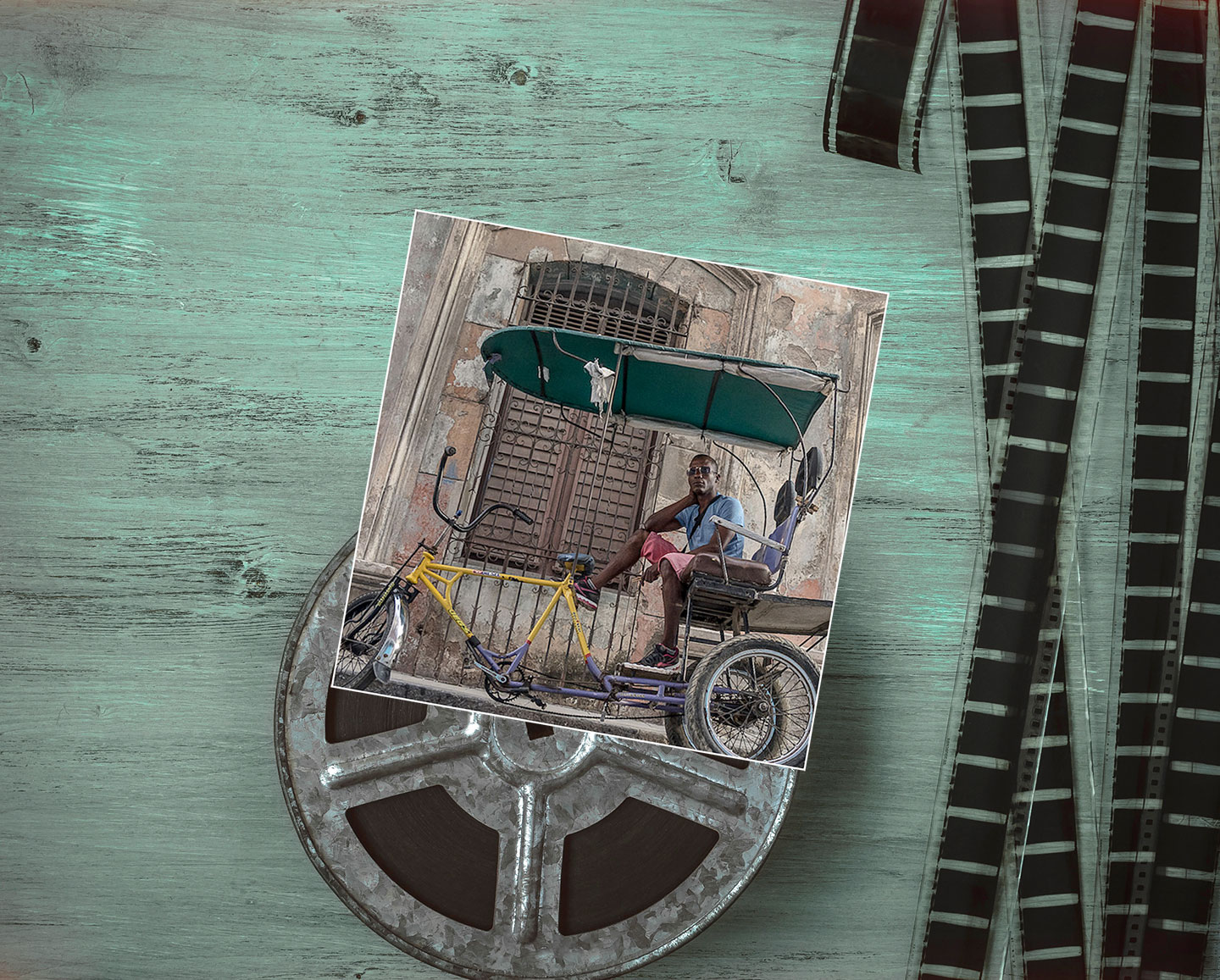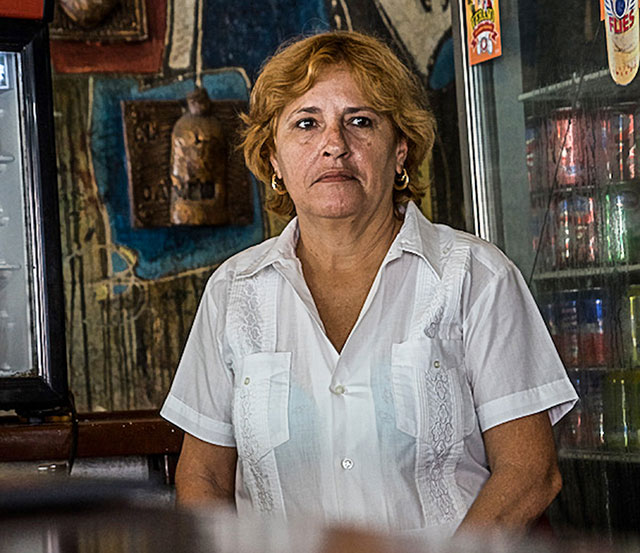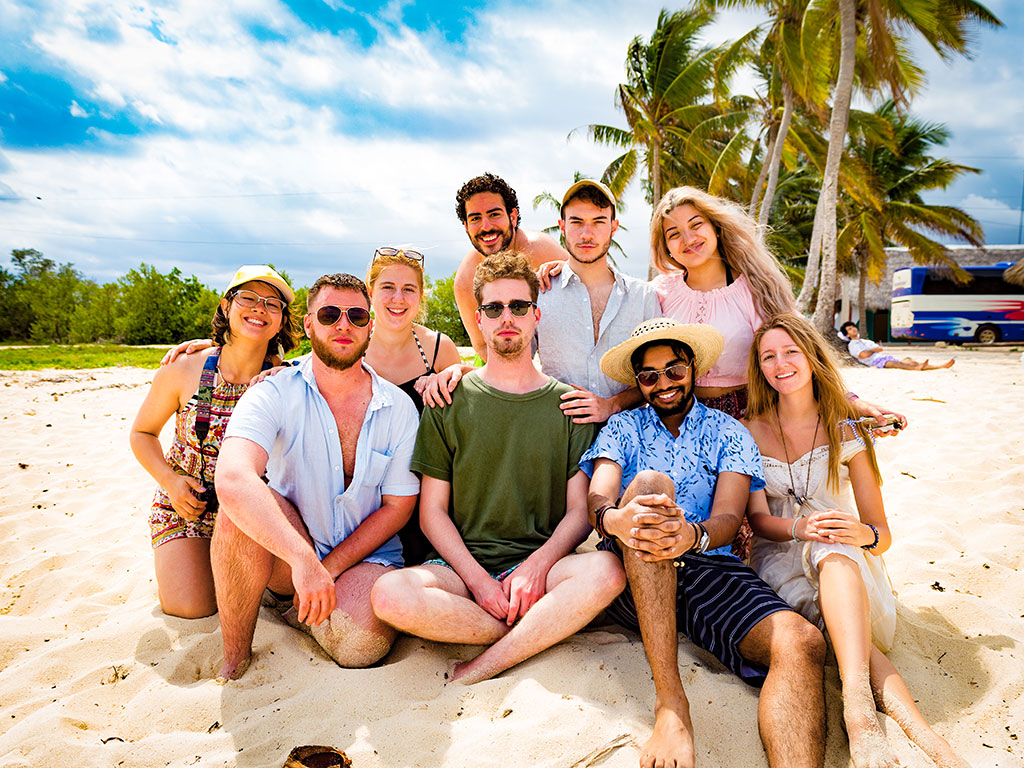
Lights, Action, Cuba!
Cuban exchange trip strengthens University’s relationship with filmmakers and the International Videoart Festival of Camaguey
By Amy Wagner
Scenes from Cuba: Montclair State professor Susana Juniu took these photos while in Camaguey, Cuba, for the International Videoart Festival.
Student filmmaker Will Monahan is always looking for new ways to share his work. In April, he was able to screen his film i, u, we, us, this in Cuba at the seventh International Videoart Festival of Camaguey (FIVAC). Held in the World Heritage City of Camaguey, FIVAC is the only event of its kind in Cuba.
Monahan was one of nine students who accompanied Television and Digital Media Professor Beverly Peterson and Filmmaking Professor Karl Nussbaum on a weeklong trip to the biennial festival, which showcased Monahan’s work alongside films produced by a roster of 75 international emerging and established artists and filmmakers. “We screened a reel of the best Montclair State experimental films from current students and very recent alumni the past few years,” says Peterson.

“My film explores the idea that the human experience transcends time, race and setting, using clips from 17 different films that I accompanied with short text I’d written,” says Monahan. “It was surreal to see people watching something that I made. A woman came up to me after viewing my film and said, ‘I know you a little better now.’ That was very touching.”

Monahan’s i, u, we, us, this and sophomore Peter Chapman’s short silent film The String of Things, which tells the story of a young man’s struggles with substance abuse, were both well received by festival audiences. “Both students were interviewed for a festival blog article,” says Peterson. “They were super excited about that.”
A vibrant relationship
The trip strengthens Montclair State’s deepening relationship with internationally acclaimed Cuban filmmakers and festival organizers Jorge Luis Santana Pérez and Diana Rosa Pérez Legón. “They’ve developed programs to reach out into Camaguey so they can use experimental video and art as a way to build community,” Peterson notes.

The husband and wife, who first visited Montclair State in 2015, returned in February and were interviewed by Peterson’s class in advance of the trip and premiered a short documentary film by Legón at the University’s Film Forum.
Students also got to know Pérez and Legón and each other at a special pre-trip orientation session. “There were a lot of questions about what to expect and the students were all curious about what Cuba is like,” Peterson recalls.
Faculty features
Both Peterson and Nussbaum – who received Global Education Center grants to subsidize their travel expenses – screened their own work at FIVAC. Peterson, who had screened her transmedia documentary What Killed Kevin at the 2015 festival, presented Memory Rooms, an experimental virtual reality documentary experience.
“The storyline of the project is directly linked to Cuba and it’s easy to relate to, and was really well received,” she recalls. “I’m also excited by the use of evolving technologies. Memory Rooms uses HTC Vive room-scale virtual reality and it was exciting and magical to see the fascination in the use of this technology as a storytelling platform.”
According to Nussbaum, his experimental film Night Blooming Flower is a meditation on death, memory, acceptance and the passage into the world of the dead. In describing his film, Nussbaum says, “It was originally made for a video installation in which the film was projected onto a large, Vietnam-era parachute hung in a dark gallery, with an oscillating fan behind the parachute making the projection screen sway as if breathing.”

A transformative trip
According to Peterson, the trip made a lasting and positive impact on the students. “Camaguey is a fascinating, friendly city that is easy to get around and explore, so students were immersed in a new culture that only recently became accessible for most Americans,” she says.
They've developed programs to reach out into the Camaguey so they can use experimental video and art as a way to build community.
For most of the students, the trip was their first exposure to a truly international art event. “It was really fun and gratifying as their teachers for us to see them meeting, networking and engaging in deeper dialogues with video artists from all over the world,” says Peterson.

For the students themselves, the trip was a transformative experience. “It gave me new insight on myself and on different cultures,” states Monahan.
Senior Journalism major Laila Abuelhawa says it was an honor to attend an international film festival as a student. “The trip was an incredible experience, and the films I saw were inspiring,” she says. “It was life-changing and made me think about so many different things – from the impact some of the films had on me to the people who live there.”
